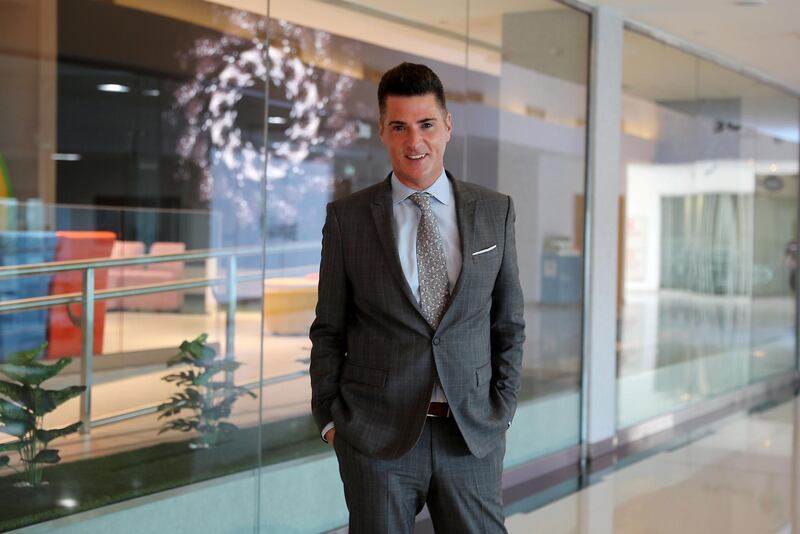Virtual reality is bringing learning to learn to life in the classroom - with new technologies already being used as a vital teaching tool in the UAE.
Schools are experimenting with virtual reality to immerse pupils in simulated environments which encourage creativity, problem-solving skills and critical thinking, said an expert at an education technology conference in Abu Dhabi.
Popular online games such as Minecraft - in which pupils can build objects using a variety of blocks in a 3D world - are already being utilised by teachers in the country.
Trends in education technology were a popular theme at Bett MEA, an education event held at Abu Dhabi National Exhibition Centre on Monday.
Teachers as well as experts in education technology gathered to discuss the future of education.
Virtual reality could take the shape of creating a house in a game or using a headset to help engage the pupil in a story.
“Virtual reality does many great things. It's great for storytelling and for students to see advanced concepts they couldn't have experienced,” said Anthony Salcito, vice president of Worldwide Education at Microsoft.
"There are going to be great opportunities for bringing immersive experiences with virtual reality. Augmented reality, virtual reality and mixed reality will become trends. Also, artificial intelligence and and personalisation of learning will be trends."
He believes augmented reality has the potential to be a valuable education resource
Augmented reality involves superimposing sounds or images onto a real-world environment.
Through augmented reality, a teacher can bring up the image of a dinosaur, for example, and set in on a table for pupils to watch and learn. Mixed reality combines virtual with augmented reality.
When asked about his vision of the classroom of the future, he said that it will resemble the dynamics of the workplace.
“Teachers will become part of the learning journey. Instead of going to a science class, pupils will collaborate in meetings and have more flexible classes."
Omar Farooqui, founder of Dubai-based Coded Minds, an alternative education company which creates programmes for young people, said technology will play an increasingly important role in education in years to come but is not yet a focal point of teaching in schools.
“A very small percentage of schools (mostly private) are using virtual reality, augmented reality and mixed reality at present. And, they are using it only as an after-school activity," said Mr Farooqui.
However, he believes education technology will soon "become ubiquitous in classrooms."
"In the near future, augmented reality and mixed reality will take over subject matter learning while artificial intelligence will help teachers to personalise learning," he said.

Andy Turner, head of education technology and innovation at Aldar Academies, a school developer in Abu Dhabi, said that their schools are experimenting with virtual reality in the classrooms.
For a lesson based on how to build a bridge, the school will let the pupils design a bridge, using virtual reality technology, and then 3D print it so they can see the end result.
He said simulations add value to education and virtual reality enables teachers to create immersive simulations.
"We are trying to create unique learning experiences for our pupils.
"For example, if a class is studying the human body they just have to swipe to look at the different systems in the body."
The teacher said the school assesses and studies the impact of technology before implementing it in a class.
"Just because artificial intelligence is a hot topic does not mean we will add AI into our classes. We don't just buy into technology for the sake of it. At the heart of the decision is the pupils and the teacher. We think of whether this adds value to the school."








